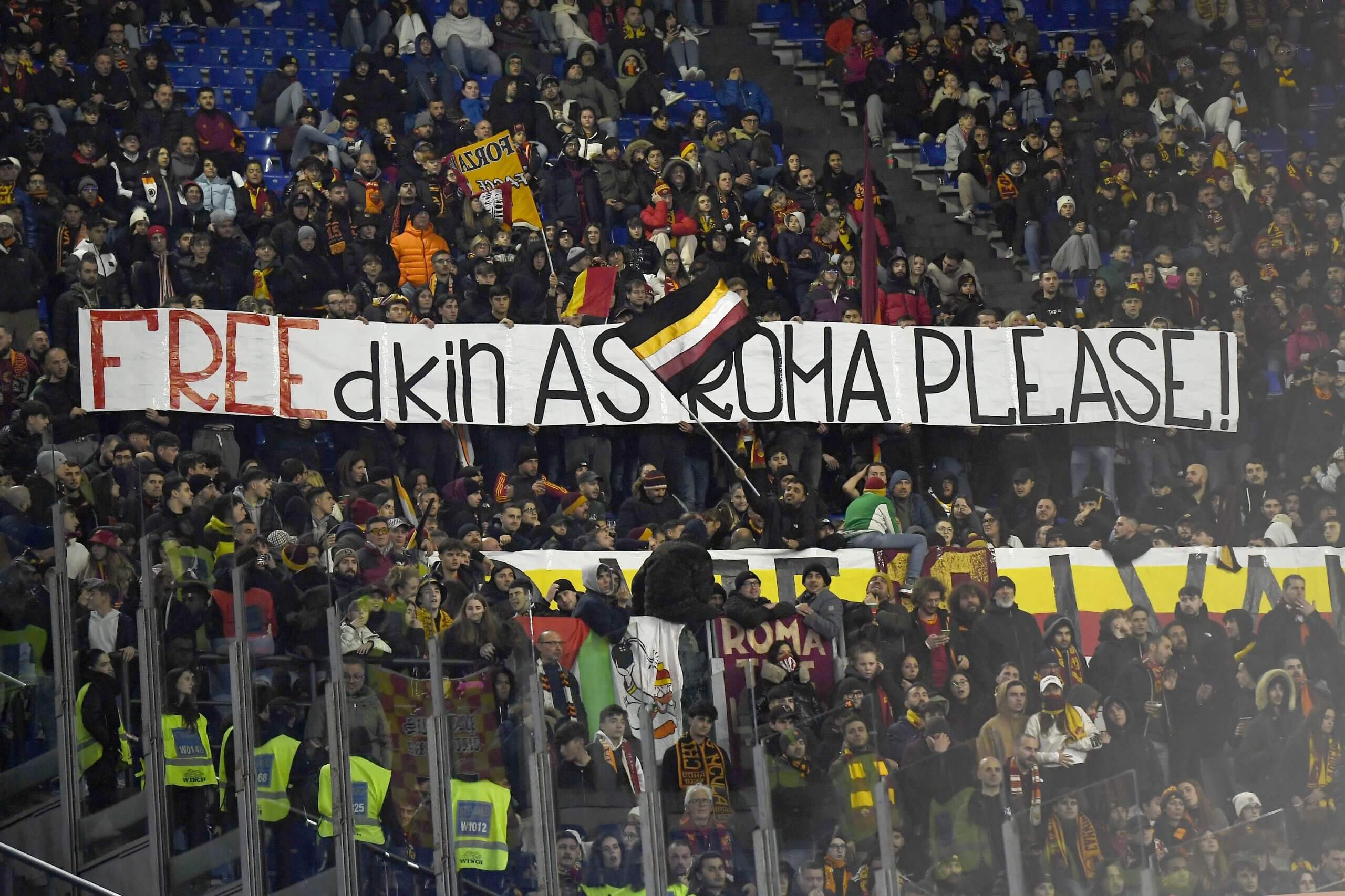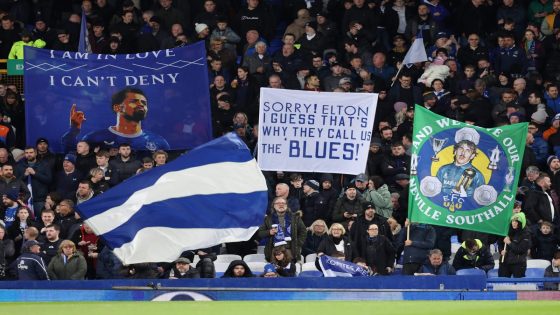In Ancient Rome the statues of bad emperors would be swiftly torn down after they were usurped.
Their likeness might be hacked from marble columns, their pronouncements annulled and their names scratched from public record.
The aim was damnatio memoriae: a condemnation of the memory.
Regime change has finally taken place at Everton today, The Friedkin Group (TFG) extending their own empire from the Eternal City that once ruled the world, to the banks of the royal blue Mersey.
In the wash of relief and hope at their arrival, it could be tempting for Everton fans to attempt a modern-day damnatio memoriae, a scorched-earth erasure of the past.
Such has been the difficulty of the last nine years under Farhad Moshiri that those connected to the club may wish to wipe the slate clean, forget it all and focus on the future.
Of course, Moshiri’s significant achievement — the glistening new Bramley-Moore Dock stadium that will open next season — will be cherished, but supporters will not want to dwell on much else he oversaw in terms of actual football, from the rash overspending, clumsy decisions and erosion of the club’s pragmatic reputation to a procession of ill-suited managers and, in the end, a string of relegation battles and points deductions.
Our new home from the roof of the Royal Liver Building 🤩 pic.twitter.com/wnjdu54MO8
— Everton Stadium (@EvertonStadium) December 6, 2024
Add in a split between the former board and fans, then a void in overall leadership and accountability that has lasted since the departure of the previous chief executive 18 months ago. It has become the norm for Everton to teeter near the edge of the Premier League, and perhaps even existence if Moshiri had been able to sell to his earlier preferred bidders, 777 Partners.

It’s not difficult to realise why supporters want to move on.
But it is essential everyone connected to the club, as difficult as it may be, attempts to take a dispassionate view of the last nine years and learn from it. Because there are too many lessons to be ignored that could just as easily become repeat mistakes.
Perhaps the first is not to get swept along with saviour syndrome. By all means, be delighted at the onset of new custodians, yet where once they prayed for someone like Moshiri, those who cherish this grand old club must extend a friendly but considered scrutiny to TFG.
Where Moshiri’s early statements of intent, in terms of signings and pronouncements about becoming an A-List member of football’s North-West “Hollywood”, whet some appetites for a bright future, they eventually led to waste and dysfunction.
The club failed to make the sensible, unglamorous, structural decisions around its football personnel and slowly sank the stable ship built during the David Moyes era. For their first ever director of football they hired Steve Walsh, a chief scout from surprise title-winners Leicester City, based on muddled thinking. It did not improve much from there (when they did hire a suitable director of football, in Marcel Brands, he was not given the requisite power).
Too often it seemed that Moshiri did listen but simply to the wrong people. If that was a tacit admission he was not a football business expert and needed guidance, that in itself was not a problem. It is the quality of the advice he sought that created problems.
A glance at the Friedkins’ time in Rome suggests they have had a challenging learning curve on their first venture into top-flight football. Their pockets are deep but their decision-making has been hit and miss.
That need not become an issue for Everton as long as TFG is smart enough to accept what they have got wrong, such as giving Daniele De Rossi a three-year contract before sacking the Roma manager just four matches into the new Serie A season, then dispensing with his replacement, Ivan Juric, after 12 games.

Everton fans know all too well the ramifications of chaotic manager dismissals as a result of flawed appointments in the first place.
The fraught start to Roma’s season drove a wedge between TFG and the club’s fans which is only now starting to ease in the wake of their more sensible drafting in of Claudio Ranieri for the rest of the season, before the experienced former Leicester City manager moves into an executive and advisory role — presumably helping find his successor.
They are expected to announce their new chief executive since the resignation of Lina Souloukou, since linked with the role at Everton, for her part in the De Rossi debacle and sparking those fan protests.
Some supporters felt their club had become too corporate, too cold and too uncommunicative.
Promisingly, their pleas for more dialogue appear to have been heeded, with technical director Florent Ghisolfi and his colleagues speaking more often in recent weeks, offering more context on the decision-making.
The Friedkins need only examine Moshiri’s communication strategy for a further primer on what not to do.
Opening themselves up to scrutiny, engaging with stakeholders, and reaching for transparency may not be the easiest part of the billionaire sports club ownership routine, but it can make the chances of success greater by taking everyone along with them on the journey.
For their part today, those anxious, success-starved, emotionally drained Evertonians will be offering them nothing but goodwill. They know success cannot happen overnight, and some may ward against showy attempted quick-fixes, such as the immediate appointment of a new ‘big-name’ manager. They’ve been there, worn the T-shirt, and watched it shrink and mangle in the wash.
It is encouraging to read the words of new executive chairman, Marc Watts, who speaks of “strengthening the men’s first-team squad through thoughtful and strategic investment”. Reading between the lines of his open letter to supporters, he appears to accept that meaningful and enduring progress will not happen overnight. Still, there will be justified excitement at this new dawn, the “best case scenario” according to insiders.
But as all eyes turn to the future, fans and owners must avoid the temptation to forget the past.
They need not sift through centuries of rubble to find testimony of Everton’s chaotic decline. They have already begun the process of consolidating the club’s hefty debt and the legacy of Moshiri’s mistakes will be their inheritance, just as his crowning achievement on the waterfront must have been a major factor in compelling them to buy the club.
Truly understanding what went wrong since 2016 requires patience and juggling with complexity, but is essential for the Friedkins.
The chance to build something bigger and even better demands first that history is not ignored.
(Top photo: Everton’s loyal fanbase are relishing the new era. Alex Livesey/Getty Images)





